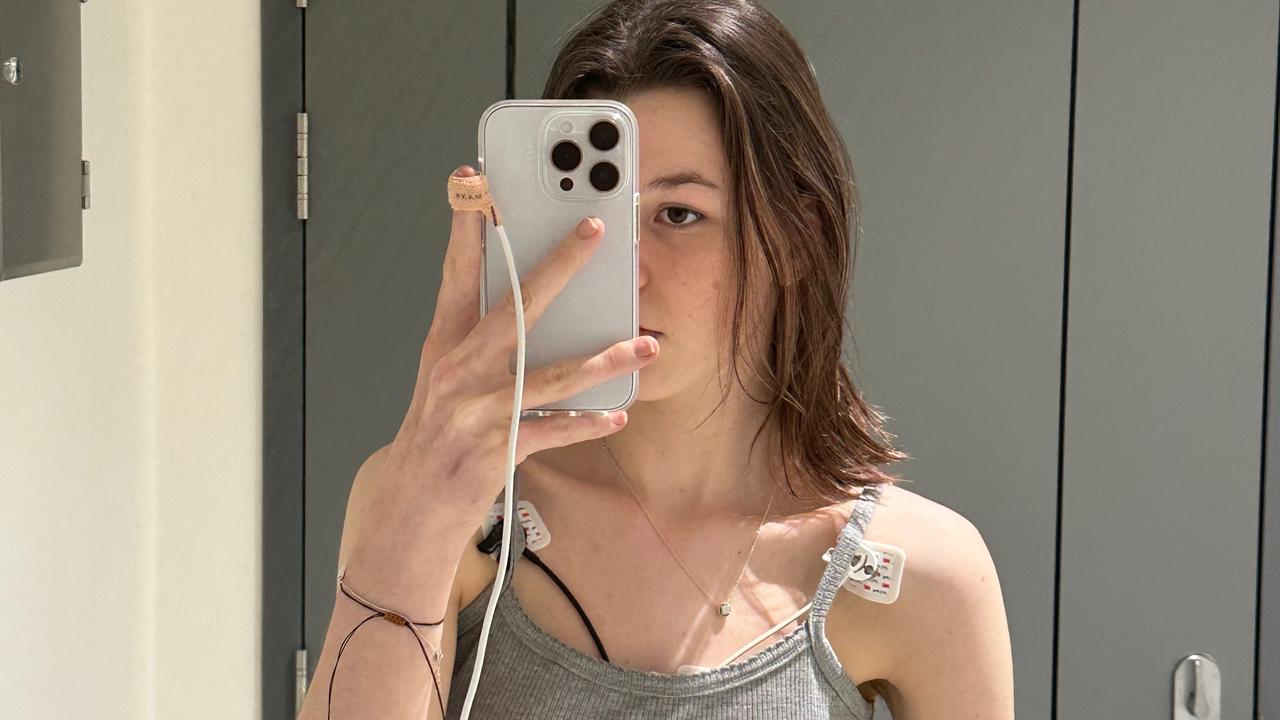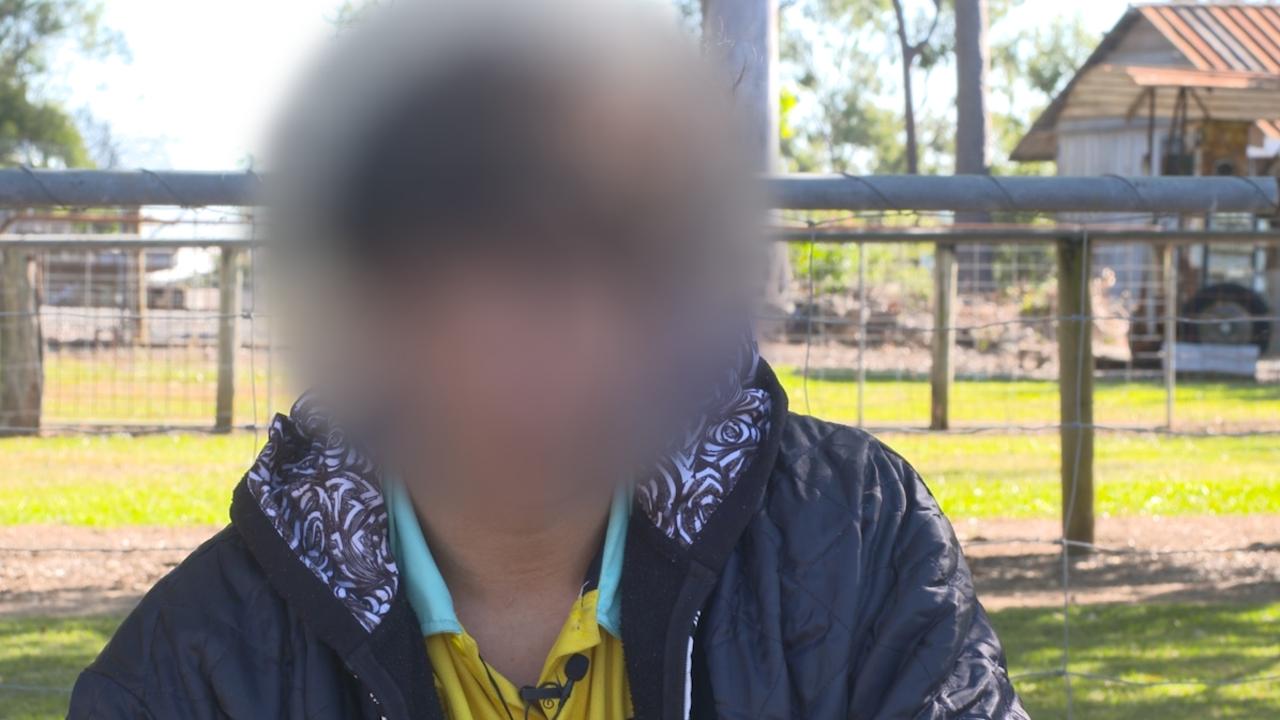Prof Nicola Spurrier: SA businesses urged to consider masks, work-from-home mandates
SA businesses have been urged to consider imposing mask rules and re-introducing work from home arrangements, as Covid cases climb once again.
Coronavirus
Don't miss out on the headlines from Coronavirus. Followed categories will be added to My News.
South Australian businesses have been urged to consider imposing their own mask rules to stop Covid-19 spreading, as a third Omicron wave sweeps the country.
Chief public health officer Professor Nicola Spurrier said employers and firms should start thinking about business continuity plans and about how to protect their employees.
The calls emerged as an urgent review into the country’s vaccine program was launched and lifesaving Covid-19 antivirals expanded.
The country’s emergency medical panel, the Australian Health Protection Principal Committee, on Friday urged employers to consider imposing work-from-home conditions.
Prof Spurrier – an AHPPC member – on Sunday endorsed the move, saying businesses should look at strategies including work-from-home and mask rules as Covid cases rise once again in SA.

“That might mean that employers might want to bring in a mask policy over this period of time as well,” she said.
“And certainly have a look at your business continuity plans because you don’t want your whole team wiped out with Covid or indeed flu at this time of the year.
“There are some businesses where you can’t work from home. (But) there are many businesses who have found that it’s actually very productive to have people working from home.
“Many employees… find that fits into their lifestyle, and they are as productive and they’re able to also, you know, look after their kids and such like.”
The state government has, however, ruled out imposing any new restrictions or mask mandates on top of those that already exist in hospitals, nursing homes and public transport.
Health Minister Chris Picton said it was more appropriate for businesses to come up with their own mandates.
“What we’re seeing now is a phase of the pandemic where businesses are making decisions in terms of what’s best for their workplace, what’s best for their business continuity,” he said.
“Many businesses are facing issues where as more people test positive, then that has issues in terms of their business.
“I think we will see businesses take measures themselves to look at how we can make sure that our workplace is protected, how we can make sure that our businesses continue.”
SA Health will on Monday expand access to a fourth, or “winter”, vaccine dose, as authorities grapple with a surge of new variants BA.4 and BA.5 that current vaccinations fail to protect against.
More than 236,000 South Australians aged 50-64 will be eligible including Prof Spurrier, who will get her fourth jab on Monday. A further 255,000 adults older than 30 are also eligible.
Authorities have reopened several vaccination clinics, including those in Rundle Mall’s Myer Centre and at Enfield, while a pop-up facility is planned for the parklands.
Under new guidelines, which are based on updated advice from Australia’s top immunisation panel, adults older than 50 are strongly recommended to get their fourth jab.
Those aged between 30 and 49 are also being urged to have an updated Covid-19 vaccine dose – despite many in these age groups shunning a third booster jab.
Figures show more than 174,000 fourth doses have been administered but a third of eligible adults have failed to get the winter jab.
‘This will save lives’: Thousands to gain access to Covid treatments
Meanwhile, an urgent review into the country’s Covid vaccine program has been launched, as thousands of South Australians gain access to lifesaving Covid-19 drugs.
Federal Health Minister Mark Butler announced former Commonwealth health chief Jane Halton would investigate procurement adequacy.
The review, which is expected to report back within weeks, will also explore supplies of antivirals as the eligibility is expanded.
“I’ve asked Jane Halton to conduct an urgent review into the adequacy of our existing vaccine and medicine procurement arrangements for Covid to make sure they fit for purpose for the rest of this year and into next year,” Mr Butler said in Adelaide on Sunday.
“Up until now, it was very, very difficult to get access to these (antiviral) medicines in spite of the fact that the former government to their credit, bought 1.3 million doses of those medicines.
“But up until now, they’ve essentially been sitting on shelves in warehouses instead of out there doing their job to prevent severe disease.”

The Advertiser this week revealed how difficult it was for South Australians to access the lifesaving antivirals.
Every person over the age of 70 will be able to get a script from their GP for the oral treatments at an affordable rate under the Pharmaceutical Benefits Scheme from Monday, while the risk factor threshold for younger people has also been lowered.
Under the expansion, Australians over 50 can access the drugs if they have two or more risk factors, such as obesity, asthma, heart conditions or diabetes, with the age lowered to 30 and over for Aboriginal and Torres Strait Islander people.
The oral antivirals, Lagevrio and Paxlovid, have been shown to be effective in the early treatment of mild to moderate Covid-19 in adults who are at increased risk of progression to hospitalisation.
Previously, the antivirals were available only to people aged over 75 with at least one underlying condition, or 65 and over with two risk factors. Australians 18 and over who are “moderately to severely immunocompromised” were also eligible and this remains unchanged.

New Covid case numbers in SA have been hovering around 4000 a day over the past week.
SA Health last Tuesday said new modelling forecast a rise in hospitalisations of people suffering only from Covid from fewer than 100 cases to more than 150 within three weeks.
Mr Picton welcomed the expansion and criticised the slowness of decisions from an expert pharmacy panel.
“I think this decision is clearly going to save people’s lives,” he said of the antiviral expansion.
“And we need to encourage as many people as possible to get access to these antivirals.
“The previous rules were far too restrictive.
“These new rules are really targeted in terms of where we know the greatest impact of people ending up with severe issues having to go to hospital or the risk of death is and that’s people who are in the elderly population.”





